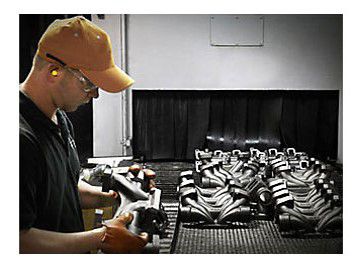Conflict Minerals Statement and Compliance
Conflict Minerals Overview
In 2010, Congress passed the Dodd-Frank Act, which directs the Commission to issue rules requiring certain companies to disclose their use of conflict minerals if those minerals are “necessary to the functionality or production of a product” manufactured by those companies. Under the Act, those minerals include tantalum, tin, gold or tungsten.
Congress enacted Section 1502 of the Act because of concerns that the exploitation and trade of conflict minerals by armed groups is helping to finance conflict in the DRC region and is contributing to an emergency humanitarian crisis. Section 1502 of the Act amends the Securities and Exchange Act of 1934 to add Section 13(p).
The Rule
The final rule applies to a company that uses minerals including tantalum, tin, gold or tungsten if:
- The company files reports with the SEC under the Exchange Act.
- The minerals are “necessary to the functionality or production” of a product manufactured or contracted to be manufactured by the company.
The final rule requires a company to provide the disclosure on a new form to be filed with the SEC (Form SD). (Source: SEC.gov)
To learn more, please visit information in the links below:

Customer or dealer inquiries related to Conflict Minerals can be directed to the Conflict Minerals inbox.
Caterpillar Conflict Minerals Position Statement
The United States Congress has associated the extraction and trade of tin, tungsten, tantalum, and gold (“Conflict Minerals”) with human rights violations in the Democratic Republic of the Congo and adjoining countries (collectively, the “DRC”). Caterpillar is committed to the responsible sourcing of Conflict Minerals used in our products. With regard to the extraction and trade of Conflict Minerals, Caterpillar will not knowingly provide support to, contribute to, assist with, or facilitate armed conflict in the DRC.
Caterpillar will not knowingly provide any direct or indirect support to non-state armed groups or security forces that illegally control or tax mine sites, transport routes, trade points, or any upstream actors in the supply chain. Similarly, Caterpillar has a comprehensive policy that prohibits its employees from engaging in corruption and bribery. We expect the parties in our supply chain to follow the same principles.
Caterpillar will follow due diligence procedures relating to Conflict Minerals which are consistent with a nationally or internationally recognized due diligence framework which may include the OECD Due Diligence Guidance for Responsible Supply Chains of Minerals from Conflict-Affected and High-Risk Areas.
Caterpillar actively participates in initiatives to support responsible minerals sourcing such as the Responsible Minerals Initiative. Caterpillar will also rely on industry initiatives, such as the Responsible Minerals Assurance Process in our efforts to validate that the Conflict Minerals used in our products are not facilitating armed conflict in the DRC and come from conflict-free sources. Suppliers are encouraged to procure materials through conflict free sources and, when reasonably feasible, through validated smelters. Caterpillar does not want to prevent its suppliers from sourcing responsibly from legitimate mines located within the DRC as doing so could be detrimental to the local economies and populations.
Supplier Requirements
Where possible, Caterpillar will incorporate the principles of responsible sourcing of Conflict Minerals into our contract terms with suppliers and will work with our suppliers to create awareness of these issues within our supply base. We will make our position statement available to our suppliers and expect them to adopt similar positions or policies with respect to their own supply chains.
Caterpillar encourages its suppliers that manufacture components, parts, or products containing Conflict Minerals to procure those materials from conflict-free sources. We expect our suppliers to adopt, implement and communicate to sub-suppliers their positions and policies regarding Conflict Minerals, and where possible, require their down-stream suppliers to adopt and implement similar positions and policies. Caterpillar’s suppliers are expected to work with sub-suppliers to trace conflict materials at least to the smelter level and encourage the use of a standard reporting process (e.g. the Conflict Minerals Reporting Template). Caterpillar reserves the right to request its suppliers provide further evidence of their conflict mineral supply chain, including down to the mine level, if necessary. We expect suppliers to maintain such traceability data for five years and provide this information to Caterpillar upon request.
Suppliers are encouraged to support industry efforts to enhance traceability of Conflict Minerals and responsible practices in their global supply chains.
Caterpillar’s approach is to establish long-term relationships with suppliers and, when feasible, to seek sustainable solutions while working with suppliers to drive improvements. Suppliers acting contrary to Caterpillar’s position described herein must commit to and implement a corrective action plan within a reasonable timeline. Caterpillar reserves the right to require suppliers to provide support for the effectiveness of such corrective actions and to conduct supply chain assessments. A supplier’s continued non-conformance and failure to take corrective actions may lead to additional actions, up to and including termination of the business relationship.
Inquiries relating to Conflict Minerals can be directed to Conflict_Minerals_Materials_Group@cat.com.
Multi-Stakeholder Collaboration
Caterpillar is a paid member of the Responsible Minerals Initiative (RMI). To learn more about the Responsible Minerals Assurance Process, visit their website: http://www.responsiblemineralsinitiative.org/

